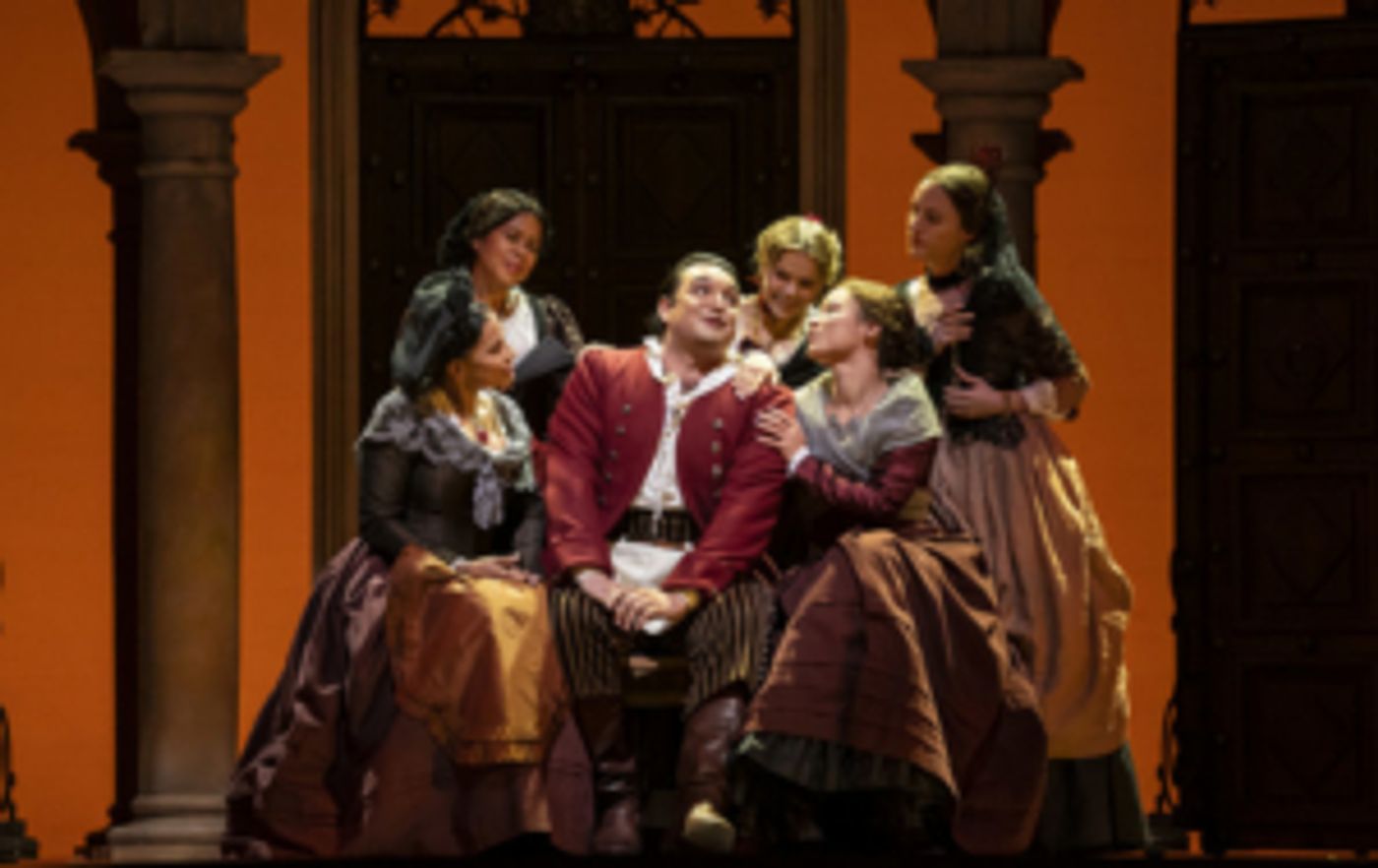Review Roundup: What Did Critics Think of THE BARBER OF SEVILLE at Lyric Opera of Chicago?

The Barber of Seville recently opened at the Lyric Opera of Chicago and critics were in attendance! Find out what they had to say.
The Barber of Seville features a terrific international cast in a sparkling original Lyric production. Czech bass-baritone Adam Plachetka is Figaro, the clever barber-fixer who solves everyone's problems. American tenor Lawrence Brownlee plays Count Almaviva, who pays Figaro to help him woo and win the beautiful Rosina (French mezzo-soprano Marianne Crebassa), the unhappy ward of Dr. Bartolo (Italian baritone Alessandro Corbelli), who wants to marry her for her money. Polish bass Krzysztof Bączyk (American operatic debut) portrays the comically conniving music master Don Basilio.
This is the fifteenth time Lyric has presented The Barber of Seville and the first time that Lyric's music director Sir Andrew Davis will conduct it here. (Stefano Sarzani will conduct the Oct. 18 performance). The Rob Ashford production features gracefully airy set designs by Scott Pask, charming costumes by Catherine Zuber, and atmospheric lighting by Howard Harrison. The production team members have collectively won 11 Tony Awards for their work on Broadway. Tara Faircloth is the revival director. Michael Black is chorus master. Sarah Hatten is wigmaster and makeup designer.Read the reviews below!
Emily McClanathan, BroadwayWorld: This cast embraces the physical humor innate to the comic opera genre. For example, the height difference between Plachetka and Brownlee is played to full effect. Figaro repeatedly attempts to hide his tall frame behind small household objects, while the diminutive Count Almaviva must leap in the air to brush his beloved's hand as she dangles it from the balcony. Brownlee draws plenty of laughs in the count's disguises, especially when he appears as Rosina's music teacher and sings in an ostentatiously nasal tone. Crebassa is delightfully mischievous as Rosina, and the trio's attempts to outwit the crusty, lascivious doctor are increasingly ridiculous--culminating in a moment when, instead of making good their escape, the conspirators stop and sing for bars on end about how they must go quietly down the ladder. The conventions of opera itself are fair game for a joke here.
Howard Reich, Chicago Tribune: The production's other vocal tour de force came from Mathilda Edge, a first-year Ryan Opera Center member making her Lyric debut as Berta, Rosina's governess. Her big moment comes in "Il vecchiotto cerca moglie," in which she ponders the madness of love. Soprano Edge yielded not only an enormous sound with remarkable point but a coyly understated humor that cut against the hysterics that preceded and followed her.
Barnaby Hughes, Stage and Cinema: While Plachetka might have been a tad awkward as Mozart's more romantic Figaro, his large size (in contrast to the diminutive Lawrence Brownlee) and goofy grin serve him stupendously as Rossini's rather flamboyant Figaro (as they did also as Papageno in Mozart's Magic Flute. Together with his outsize frame, the vim and volume of Plachetka's voice add up to a magnificent opening act entrance. Rossini's colorful vocal writing in Figaro's aria "Largo al factotum della citta", especially the exuberant lalalas, sound entirely natural (and droll) coming from Plachetka. Moreover, his voice blended beautifully in combination with the rest of the cast, especially Brownlee's lissome tenor. In past productions, Brownlee's voice has sometimes been overpowered, but not in this one; a perfect balance has been achieved between the orchestra, chorus, and soloists. Brownlee's Count captures and holds the audience's attention easily with his antics, from posing under Rosina's window to playing a drunken soldier.
Wynne Delacoma, Chicago Sun Times: Willowy and lithe, Crebassa was a standout from her first scene, her effortless singing bubbling up from a young, exuberant heart. In its lower registers, her lustrous mezzo-soprano had a dusky color that underscored pretty Rosina's steely spine. As she explained herself in an Act I aria, we didn't doubt for a minute that this young charmer could turn into a viper when crossed. Sitting on a desk, swinging her legs as she sang, she was a winsome portrait of a teenager in love. But Crebassa made it clear that this particular teenager was not born yesterday.
Lawrence A. Johnson, Chicago Classical Review: Plachetka's burly baritone is not especially well-suited for the role-un-Italianate, tending to spread, and lacking In Focus and elegance. Still, he managed to get his big voice around the corners of most of the music with a nimble, admirably dispatched "Largo al factotum" (albeit accompanied by a bit too much self-conscious swagger). Plachetka brought consistent comic energy and a hearty personality to Figaro, which in this pivotal role is nearly as important as the singing.
Photo Credit: Todd Rosenberg
Reader Reviews

Videos

